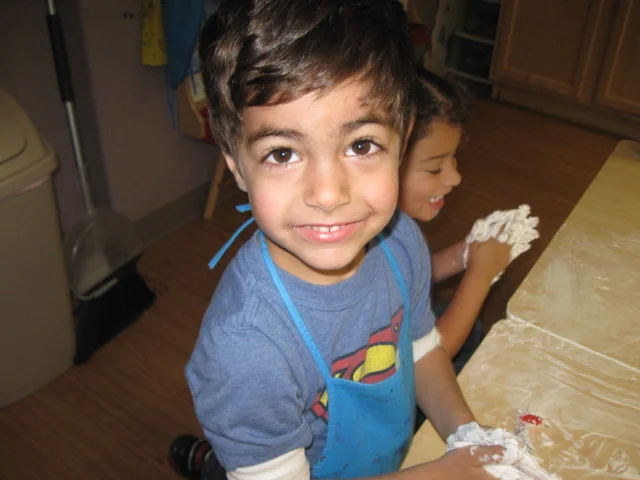Preschool
The Preschool Classroom
“From the programs, the classrooms, the curriculum, and the teachers, Monarch is a place where children are nurtured and engaged.”
“Our son has opened up out of is shell since starting at this school! Before attending, he really struggled to make friends and handle his emotions. Monarch, and the teachers, have made a huge difference in our lives. ”
Socialization
In preschool, we will be introducing your child to the process of working with others within a structured classroom environment. The structure of the preschool classroom is a child-directed format that allows students choices during activity centers. The opportunity to make choices throughout the day helps children to feel engaged in the activity of their choice, that they have control over their learning, and that they are valued members of the classroom community. In preschool, your child will:
Be expected to choose and participate in learning centers
Learn to sit, listen and participate in group activities and discussions
Learn strategies for cooperative play and conflict resolution
Learn to participate in learning centers within small rotating groups (second semester)
Social & Natural Sciences Curriculum
The monthly thematic structure provides students with the opportunity to explore the world they live in from a "child centered" perspective. Monarch's thematic structure incorporates science and social studies into the curriculum. The thematic units for the preschool program include:
All About Me: Developing a sense of self awareness through exploration of physical and emotional characteristics, preferences, and similarities and differences among peers.
My Body: An exploration of the five senses, similarities and differences in physical characteristics, the inside of our bodies, nutrition, and safety.
My Family: The child's role in their friendships in the home environment and within their families and close relatives. Students explore the concepts of community and how they have a role in their neighborhood, school and family system.
My Community Helpers: An exploration of the characteristics of a community and the people that work to help others. Students explore many common helpers and their roles including: police and fire fighters, doctors and nurses, teachers, librarians, and postal workers.
Transportation: An introduction to the types of methods people use to travel around the globe including travel by air, by land, and by water.
Animals: In introduction to the animals that live in specific regions of our world; the habitats they require for survival; the foods they eat; and their lifecycles.
Insects: A discussion on insects; their lifecycles and their role in our eco-system.
Bodies of Water: Understanding the characterisics and differences of oceans, lakes, marshes, rivers and ponds. Students review the animals and insects that live in these different habitats.
Weather: An exploration of the four seasons (spring, summer, autumn and winter) and the weather characteristics of each.
All About Me: A comparative look at the ways each child has grown and changes over the course of the school year.
Language Arts and Math Curriculum
The language arts curriculum incorporates lessons and practice activities that build specific pre-reading and writing skills including:
alphabet recognition
beginning phonics
phonemic awareness
story-telling and sequencing
book anatomy & print awareness
vocabulary
name recognition
pencil & paper work (handwriting)
rhyming & poetry
beginning comprehension
dictation
Hands-on math activities are used to explore early math skills and to build a well-rounded concept of numbers and number sense. Skills include:
number recognition
tracing/writing
early counting
shape recognition
sorting
quantity
opposites
matching
sequencing
calendar concepts (time references)
order of numbers
beginning number relationships
Academic & Enrichment Schedule
Weekly Academics:
alphabet recognition & phonemic awareness activities
phonics practice
thematic unit introduction
math concept practice
fine motor practice (tracing/coloring)
calendar & counting
listening comprehension
extension activities (center concept practice)
social skills
Monthly Academics:
Share Day
Enrichment Activities
Enrichment Curriculum Schedule:
Enrichment activities provide students with the opportunity to practice academic concepts and expand thematic awareness in multiple formats throughout the month. The enrichment curriculum, like the academic curriculum, is structured to incorporate planned activities within learning centers.
Geography
Let’s Pretend
Monarch Kid’s Museum NEW!
Construction Zone
Art Smart
Story Theater/Improv
Super Sensory
Food & Fitness
Schedule your tour today!
Talk to Us
661.294.1045
Find Us
27927 Smyth Drive, Valencia, CA 91355
Write to Us
info@monarch-academy.com


